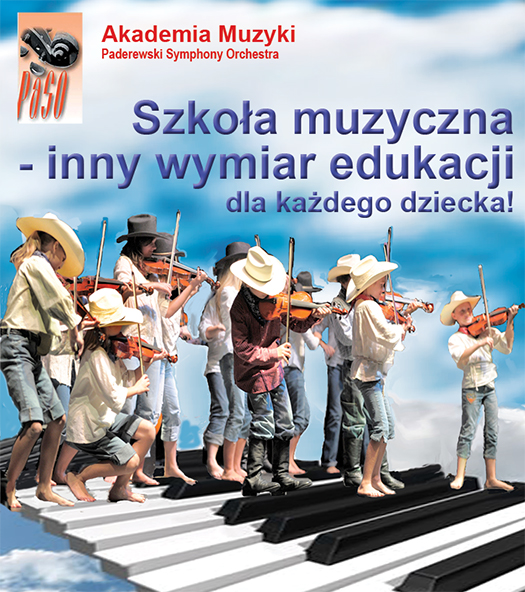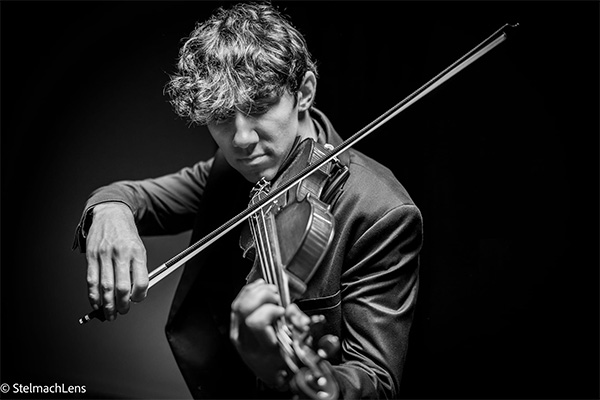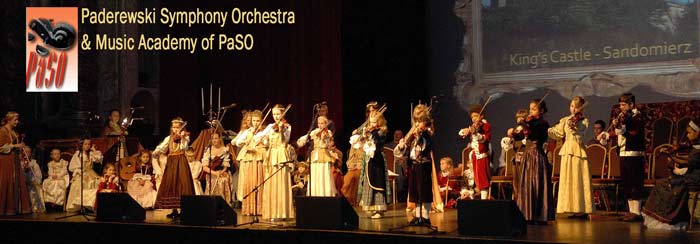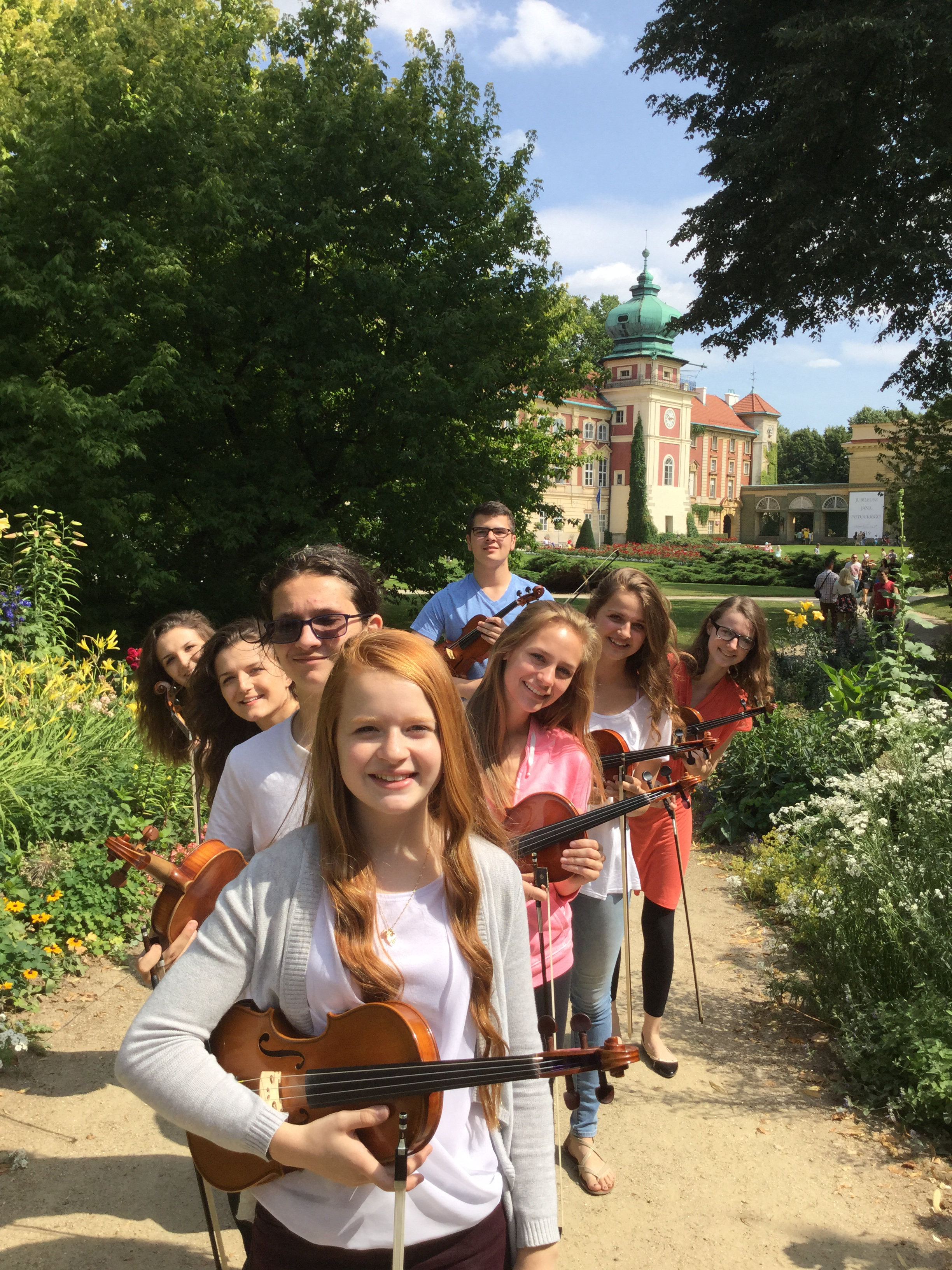DISCOVER MUSIC!
PaSO Music Academy warmly welcomes children and teenagers into the enchanting world of music!
Location: 5400 N. Lawler Ave, Chicago, IL 60630.
NOW ACCEPTING ENROLLMENTS!
Schedule an appointment to meet and consult with an experienced educator.
Contact us at TEL. 773 467 9000.
Email: paso.office@gmail.com.
AM PaSO is a distinguished music school inspired by the exemplary Polish music school model. Our unique curriculum integrates both European and American methodologies, such as Orff and Suzuki, and aligns with "American Standards."
The academy operates from September through June (a 10-month academic year),
Monday to Friday from 3 PM to 9 PM,
Saturday from 9 AM to 5 PM.
We offer classes in both Polish and English.
Core Program:
- Personalized lessons (private sessions) for learning an instrument or vocal training.
- Music Appreciation and Theory classes in small groups, limited to 6 students.
- Rhythmics for the youngest learners (ages 4-6)
Optional Enrichment Classes:
- Piccolo Choro - children’s choir.
- Youth Choir (part of our "Joy of Singing!" choral initiative)
- Chamber Ensembles - includes string and piano groups.
- Wieniawski Strings - a youth string orchestra.
Flexible Teaching Modes:
- Regular: 30-minute instrument lesson and 45-minute musicalization and theory lesson.
- Semi-intensive: 45-minute instrument lesson and 45-minute musicalization and theory lesson.
- Intensive: 60, 75, or 90-minute instrument lesson plus a 45-minute musicalization and theory lesson.
We offer 8 levels of advancement:
Preschool, Foundation, Early Intermediate, Intermediate, Early Advanced, Advanced, Virtuoso, and Precollege.
Students' progress and dedication are reinforced through regular auditions and exams.
- Technical exams at the start of each semester (scales, etudes)
- Artistic exams at the semester's end (art forms, concerts)
- Student showcases, musical marathons, and Christmas concerts.
We provide affordable pricing, family discounts, scholarships, and the option to rent instruments.
Our students perform in concerts at the school, churches, concert halls, and participate in competitions, festivals, and celebrations.
Additional Programs Include:
- Music Workshops and Master Classes.
- VIRTUOSO Program.
- Summer Music Camp at Camp Vista (WI)
Experience the joy of music with PaSO Music Academy, where every note is a step towards a brighter future!
The PaSO Music Academy boasts a distinguished group of educators in its Piano Section, each bringing a wealth of expertise and passion for music education.
Piano Department
Kamil
Budyra
Paula Grzebien-Ciezobka
Bartlomiej Ciezobka
Anetta Kukulka
Katarzyna Talar-Owsianka
Regina Purim
Alexander Purim
Violin Department:
Barbara Bilszta
Wojciech Niewrzol
Thomas Yang
Flut:
Katarzyna Talar
Violoncelo
Lilianna Wos
Choir:
Bartek Ciezobka
Kamil Bundyra
Chmber music:
Barbara Bilszta
Wojciech Niewrzol
Piano chamber ensembles
Anetta Kukulka
Paula Grzebien Ciezobka
Teoria Muzyki, Rytmika,
Ksztalcenie Sluchu:
Kamil
Budyra
Pola Grzebien
Katarzyna Talar
|
Sekcje: dziecięca, młodzieżowa i dorosłych
Dla najmłodszych (4-6 lat)
RYTMIKA z umuzykalnieniem


Nauka, kreatywność i radość.

Liczne koncerty
Uczniowie Akademii PaSO czynnie uczestnicza w wielu ciekawych i niepowtarzalnych wydarzeniach artystycznych




|
Every child deserves access to music, regardless of their talent level.
Anyone can give it a try—pick up an instrument and play! We offer free consultations and promotional lessons for the instrument of your choice.
Recent independent research from Europe and America reveals that music education significantly enhances a child's overall learning experience. It bolsters intellectual and emotional growth, serves as a catalyst for exploring the world and oneself, and fosters personality development. Moreover, it ignites a passion for acquiring knowledge across diverse fields.
Akademia Muzyki przy Paderewski Symphony Orchestra

Musical education shapes and refines:
Engaging in musical training significantly accelerates and facilitates a student's well-rounded development. It enhances intellectual capacities, improves memory, coordination, concentration, and emotional composure, while also fostering self-esteem and building self-confidence. It instills a sense of self-discipline, teamwork, and cooperative spirit, and encourages creativity and imagination.
Such training also nurtures empathy, sharpens communication skills, and develops ingenuity. It strengthens the ability to collaborate within a group, enhancing both individual and collective intellectual abilities. The practice of music aids in improving memory, heightening concentration, and maintaining emotional composure and control.
Moreover, musical training cultivates an active and engaged attitude towards the surrounding world, reinforcing a child's self-esteem and confidence. It instills a need for order, tidiness, self-reliance, and perceptiveness.
Above all, it inspires enthusiasm and the capacity to enjoy life, thereby promoting the harmonious development of a child.
In today’s fast-paced world, these essential skills should not only be instilled in children but also consistently nurtured and reinforced. One effective way to achieve this is through the study of music:
Participating in a musical ensemble or singing in a choir helps children develop communication skills and the ability to cooperate within a group. After all, the beauty of music lies in the seamless harmony of an orchestra.
By performing in concerts, children gain self-confidence and the ability to speak freely in public. For many, concerts become synonymous with experiencing art and cultural expression.
Through learning music theory and harmony, children practice numeracy and concepts related to time and space, which are beneficial in academic subjects like mathematics and physics. It is no coincidence that many musicians have a strong affinity for scientific disciplines.
Regarding foreign languages, music acts as a universal language, enhancing intonation and listening skills. Understanding the rules of music fosters logical thinking, which in turn aids in grasping grammatical rules of languages.
Learning to play an instrument and performing music instills discipline and independence, while exercising memory and concentration. The reward for this effort is immense – a deep sense of satisfaction and joy derived from music.
Both creating and listening to music sensitizes individuals, enabling them to express emotions that words often fail to convey. Through music, we learn to understand the feelings of others, boost our emotional intelligence, and stretch our imagination.
|